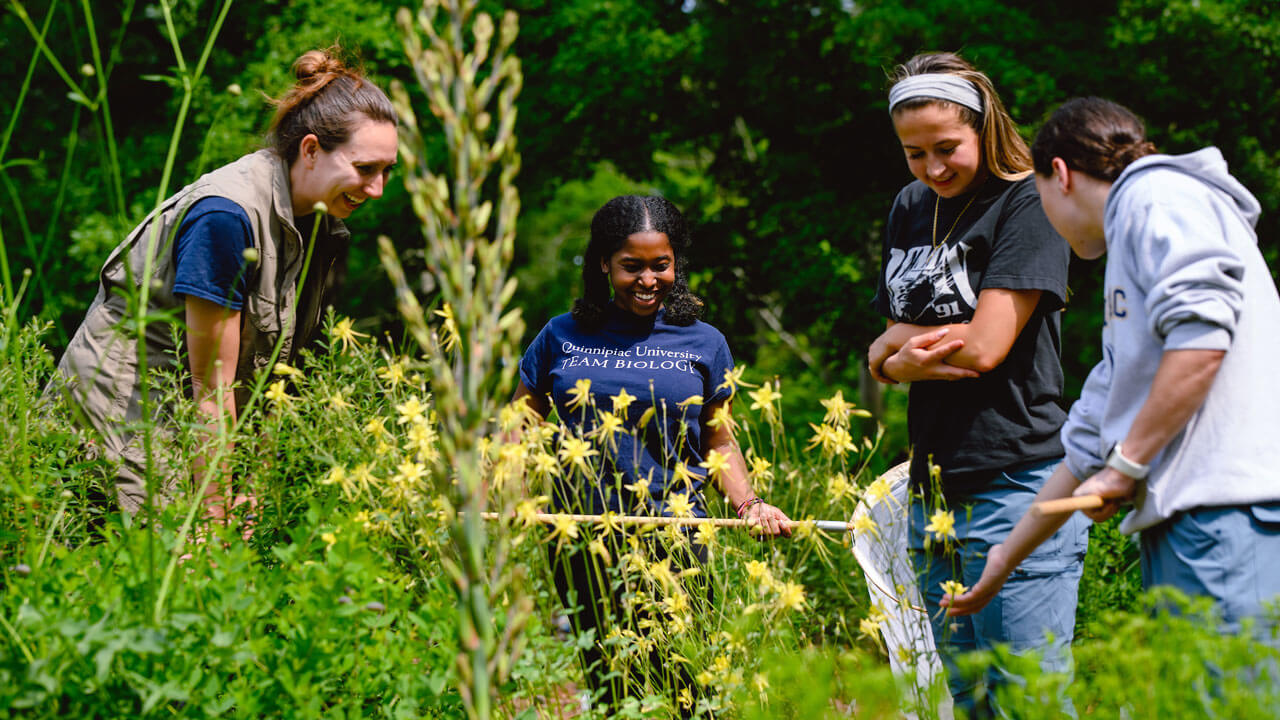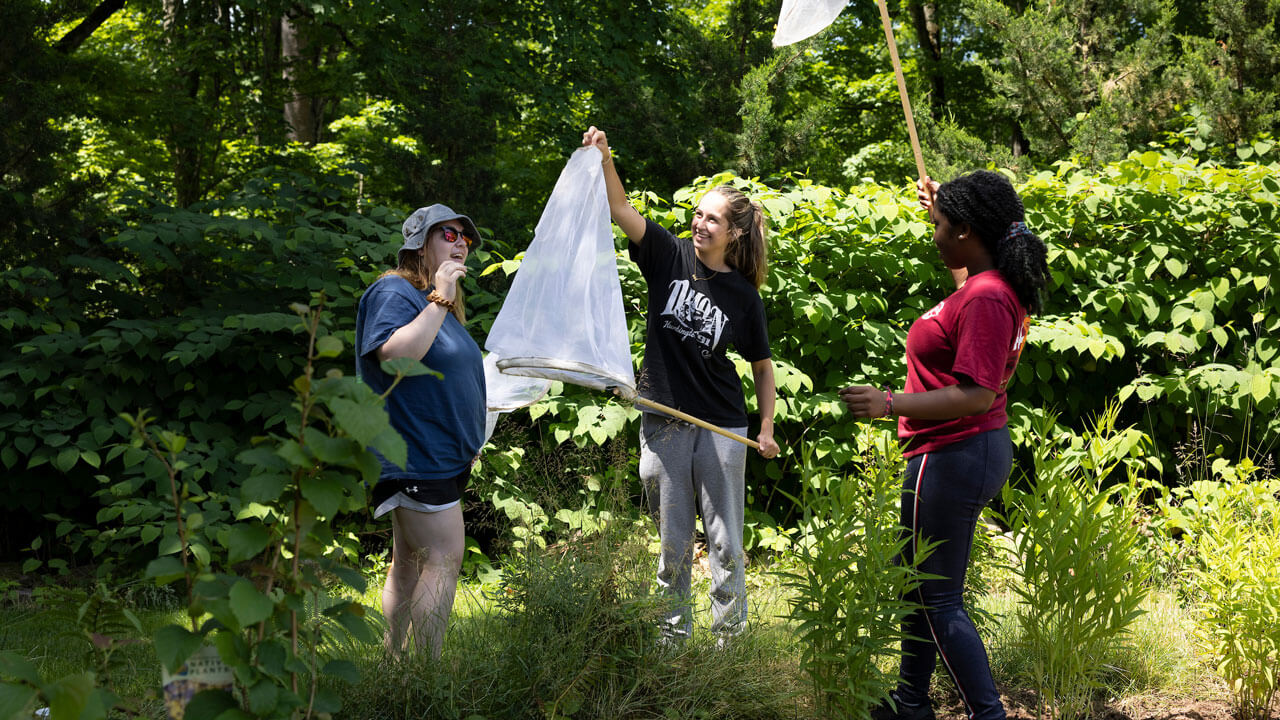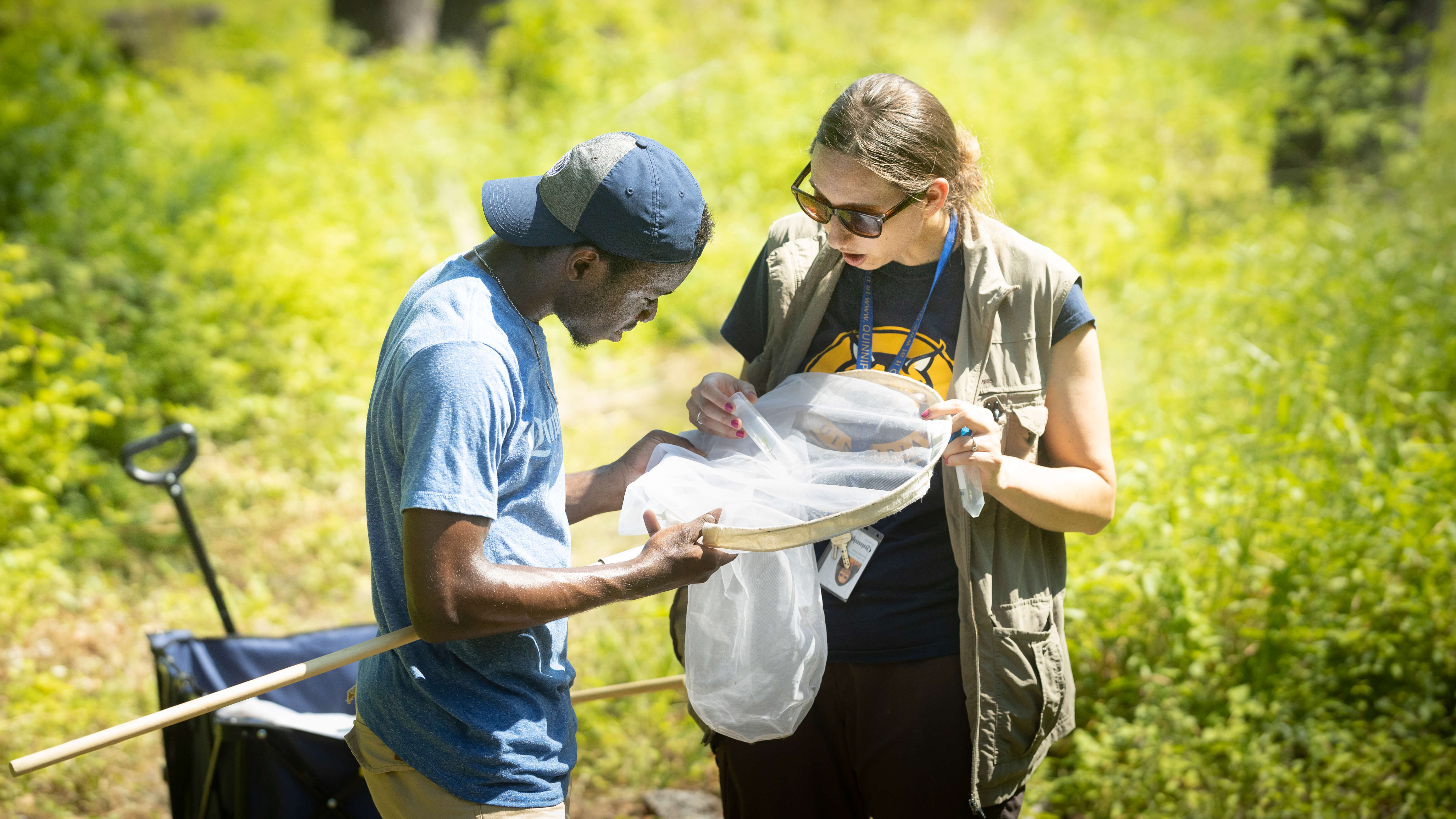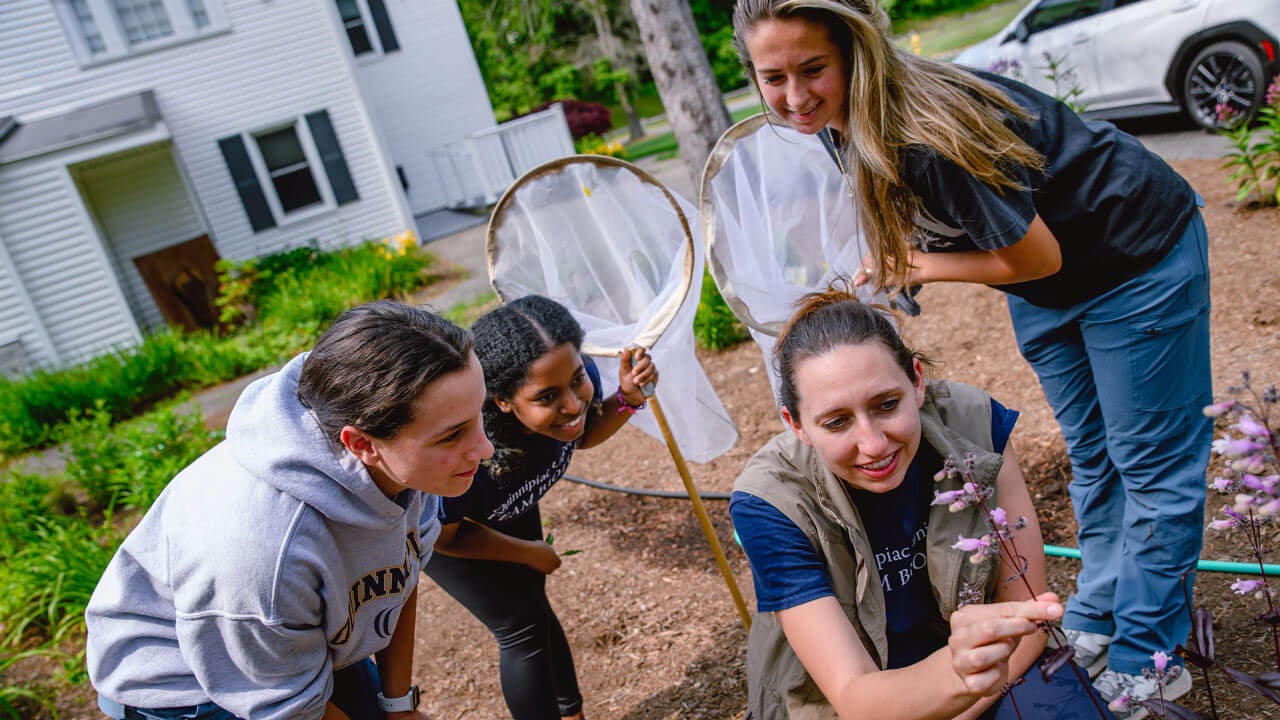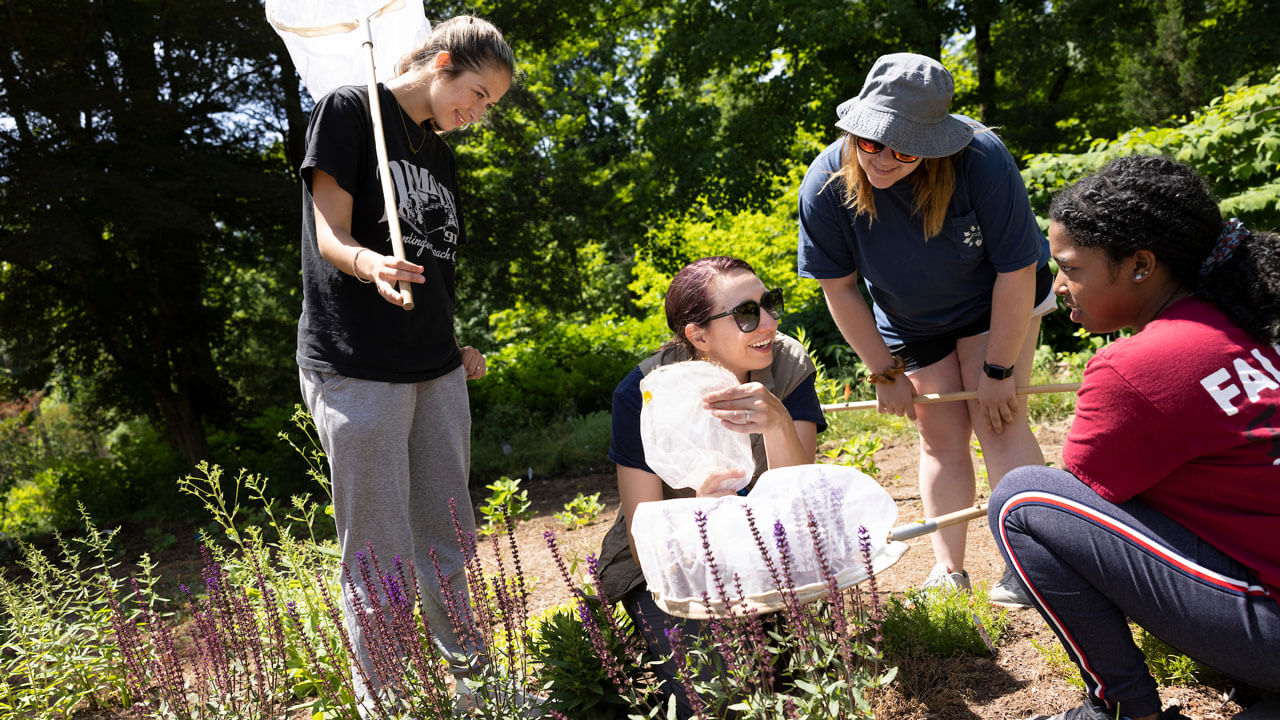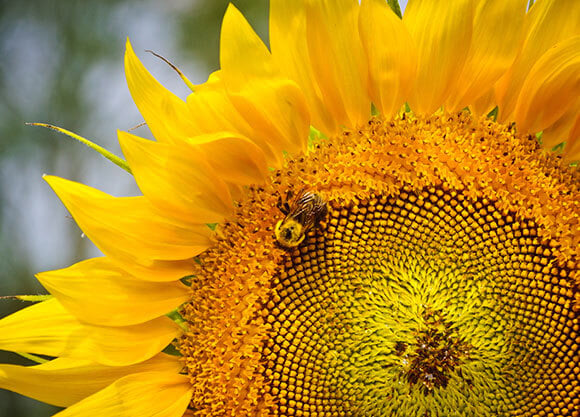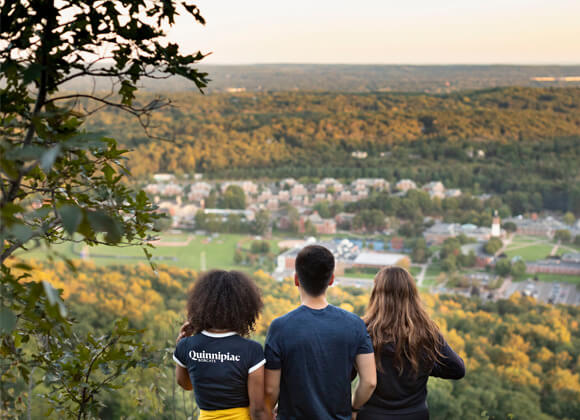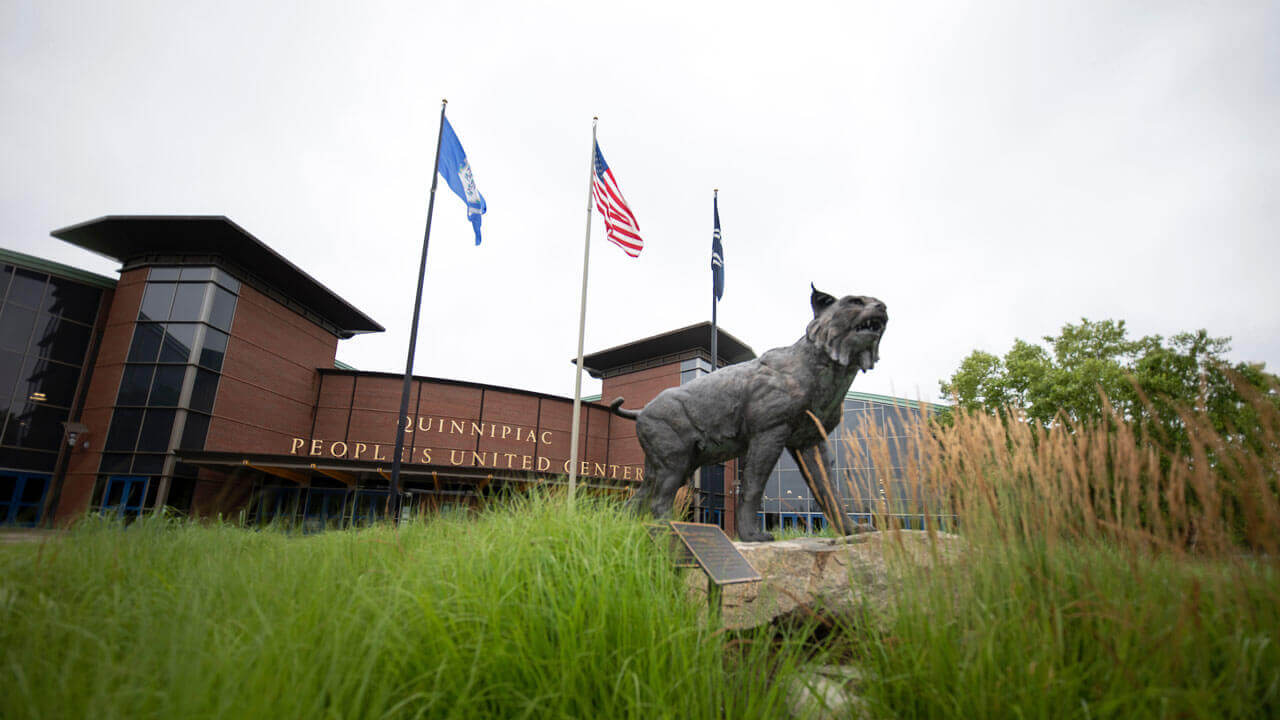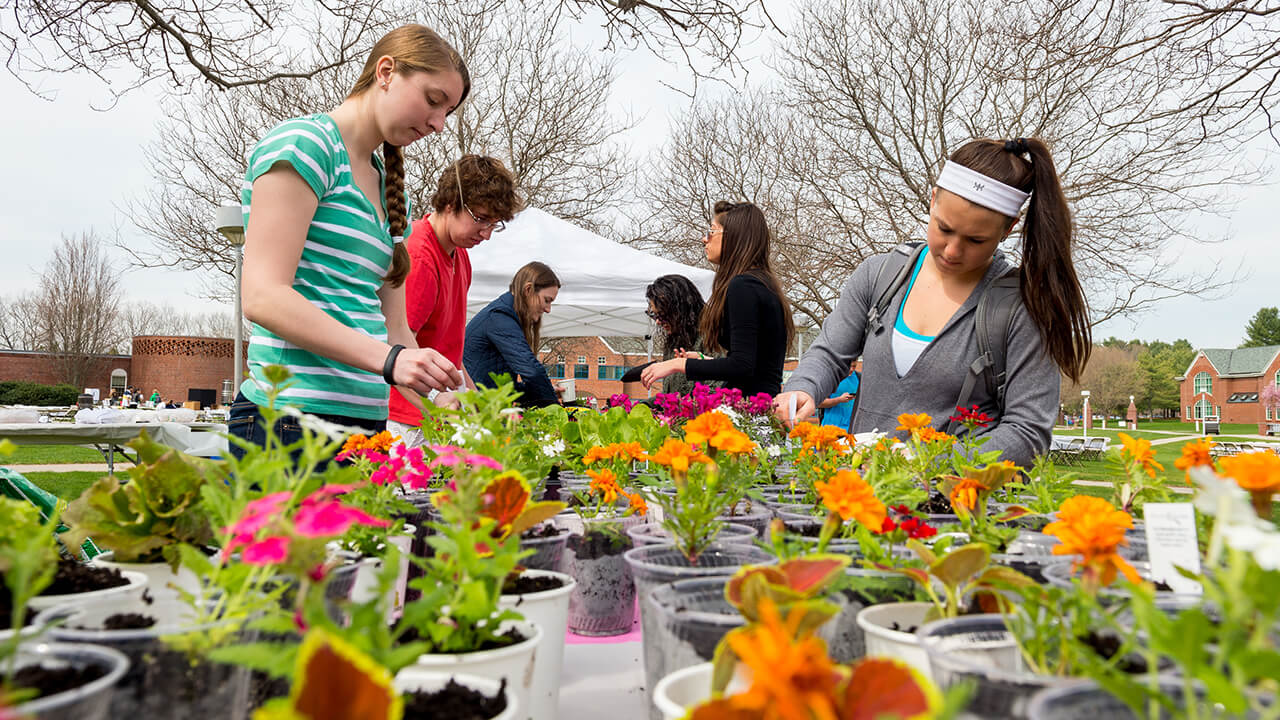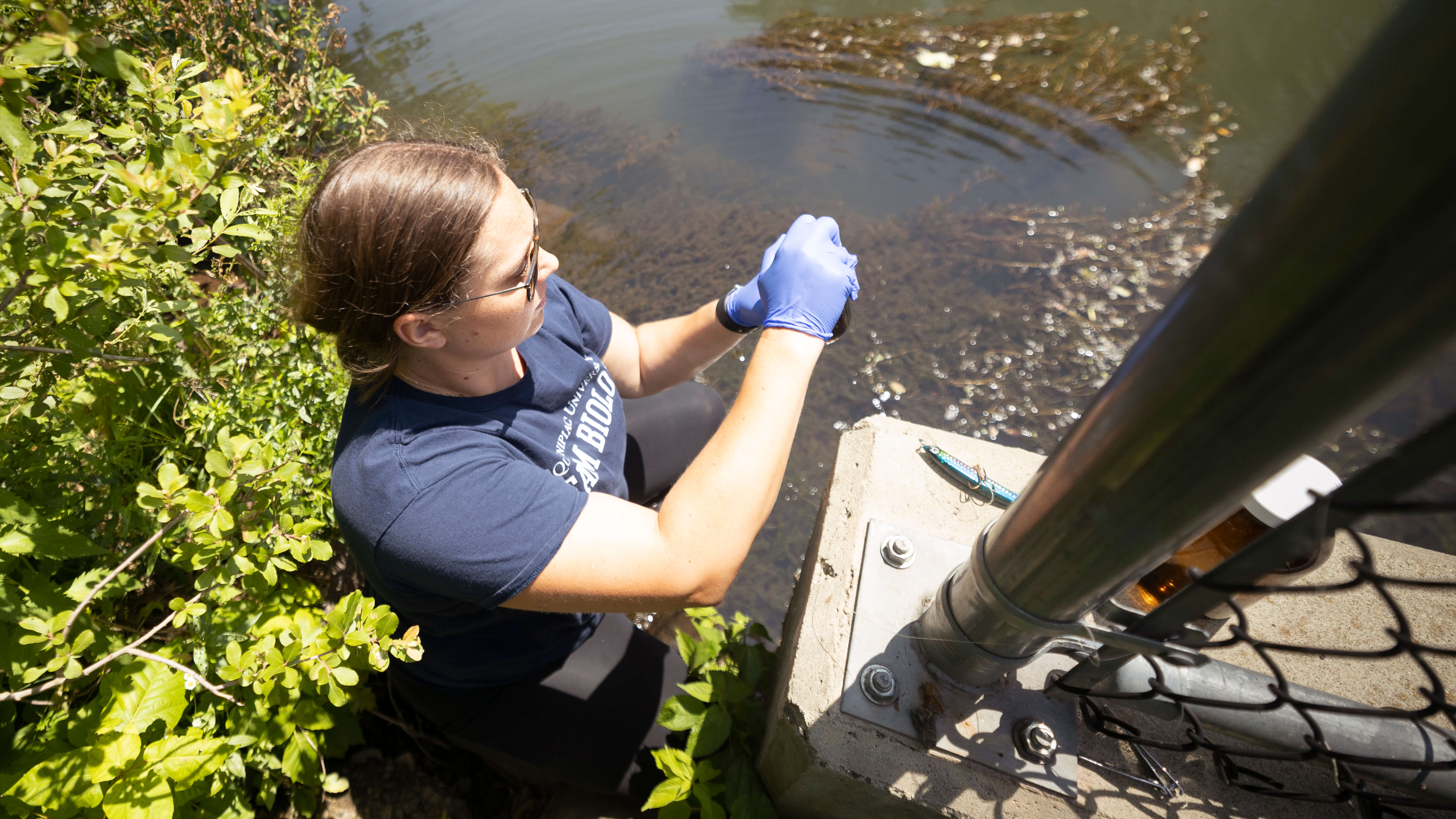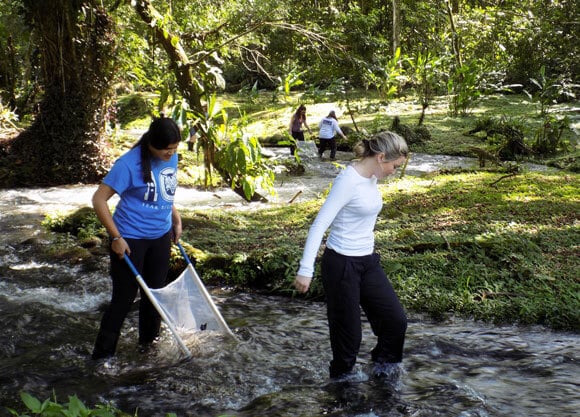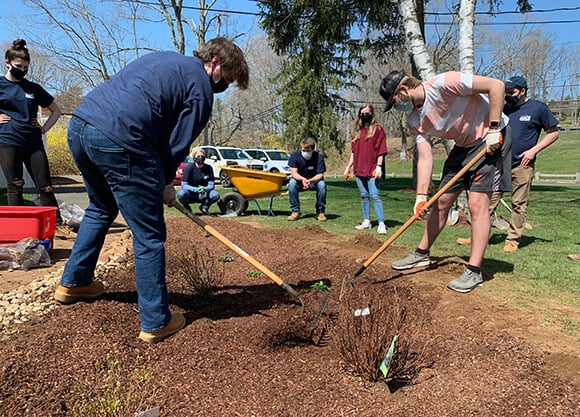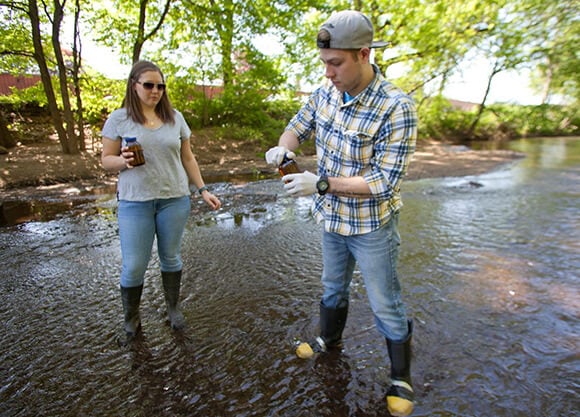Our Purpose for a Pollinator-Friendly Campus
Quinnipiac achieved affiliate status by forming a committee of students and faculty with a mission to provide a more productive, stable and diverse ecosystem. Eight garden beds were installed at the Albert Schweitzer Institute with more than 200 varieties of native plants. Also, the new implementation of South Quad will have three new buildings with mixed-species ecosystems to ensure a more dynamic environment for campus life. The addition of these gardens provides an academic element for professors to teach students about different types of pollinators, climate change and projects teaching students how to plant native and remove invasive species.
What is considered a pollinator?
Pollinators like bumble bees, sweat bees, mason bees, honeybees, butterflies, moths, beetles, flies, hummingbirds, and many others are responsible for the reproduction of almost 90% of the world's flowering plant species and one in every three bites of food we consume.
Recognition as a Pollinator Campus
Bee City USA and Bee Campus USA are initiatives of the Xerces Society for Invertebrate Conservation, a nonprofit organization based in Portland, Oregon, with offices across the country. Bee City USA’s mission is to galvanize communities and campuses to sustain pollinators by providing them with healthy habitats, rich in a variety of native plants, and free of pesticides.
To achieve affiliate status, the university accomplished the following:
- Forming a committee of students, faculty and staff, who meet monthly to discuss creating and enhancing the pollinator habitat
- Reducing pesticide usage
- Developing outreach events
- Installing a pollinator garden at the Albert Schweitzer Institute at Quinnipiac
- The pollinator garden contains eight themed beds hosting 200 varieties of native plants or native cultivars.
- The pollinator garden serves as both a research center for scholarship and a means of increasing the area's biodiversity with native pollinators.
- Additionally, the garden serves as an outdoor space for studying and meditation. Future plans for the garden include adding paths and multiple seating areas for students to gather.
How to get involved
There are many ways to become involved in sustainability initiatives at Quinnipiac. Students can participate in sustainable activities to promote stewardship around campus such as The Big Event, pollinator garden planting days and Arbor Day activities. We also offer a number of outdoor exercise classes, leisure and wellness courses, and outdoor trips sponsored through the Recreation and Wellness Center. Students are also encouraged to join a student organization dedicated to sustainability, or live in the Natural and Environmental Sciences Living-Learning Community.
Students In Action
Students assist with initiatives in our pollinator garden on the Mount Carmel Campus.
Questions or comments
We'd love to hear your feedback or suggestions. Contact us at qusustainability@qu.edu


